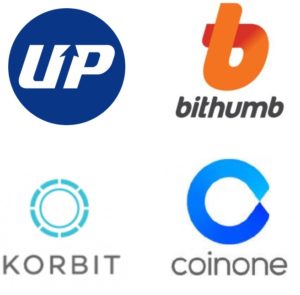[ad_1]
South Korea has overcome last year’s cumbersome relationship with crypto trading as a result of its lack of clarity and consensus at different levels of government on the legal status of these activities.
To help clean up the image of crypto trading and protect users according to government standards, the four leading crypto exchanges in the country announced a joint Anty Money Laundering initiative that will allow them to prevent scammers and hackers from trading or swapping cryptos for fiat even if they use different exchanges.
Bithumb, Coinone, Korbit, and Upbit were the exchanges that joined forces. According to information reviewed by Crypto Ninjas, the idea is to build a common infrastructure that allows constant communication between exchanges as well as a shared database to detect and track illegal operations:
“A hotline dedicated to AML issues will be established amongst the four exchanges’ respective teams responsible for user protection and fraud detection. Wallet information involving trades with suspected connections to voice phishing, predatory lending, pyramid schemes, and other illegal activities will be shared in real time through the hotline, allowing relevant exchanges to protect their users by preventing further transfer of assets”.
South Korea is Determined to Improve its Crypto Policies
South Korea is one of the most important crypto markets in Asia. The South Korean government recently announced an audit of a total of 21 exchanges to verify whether they complied with legal operating requirements and offered their customers optimal levels of security.
According to a government press release, Oh Yong-soo, an information security policy officer at the Ministry of Information and Communication explained that the audit was highly meticulous and only 30% of the audited exchanges managed to meet government requirements:
“In this inspection, from January to March last year, we received applications from 21 dealers to check 85 items of basic security requirements, and check the status of implementation of recommendations for improvement …
Most of them have security weaknesses except for seven facilities that satisfy all 85 inspection items.
Cyber attack targeting virtual currency is expected to continue this year, so dealers will complete the implementation of the recommendation for improvement of security defectiveness “
The four exchanges that today announced the Joint AML policy are among the seven that passed the test of the South Korean government. The other 3 were Huobi Korea, Gopax, and Hanbitco.
[ad_2]
Source link
